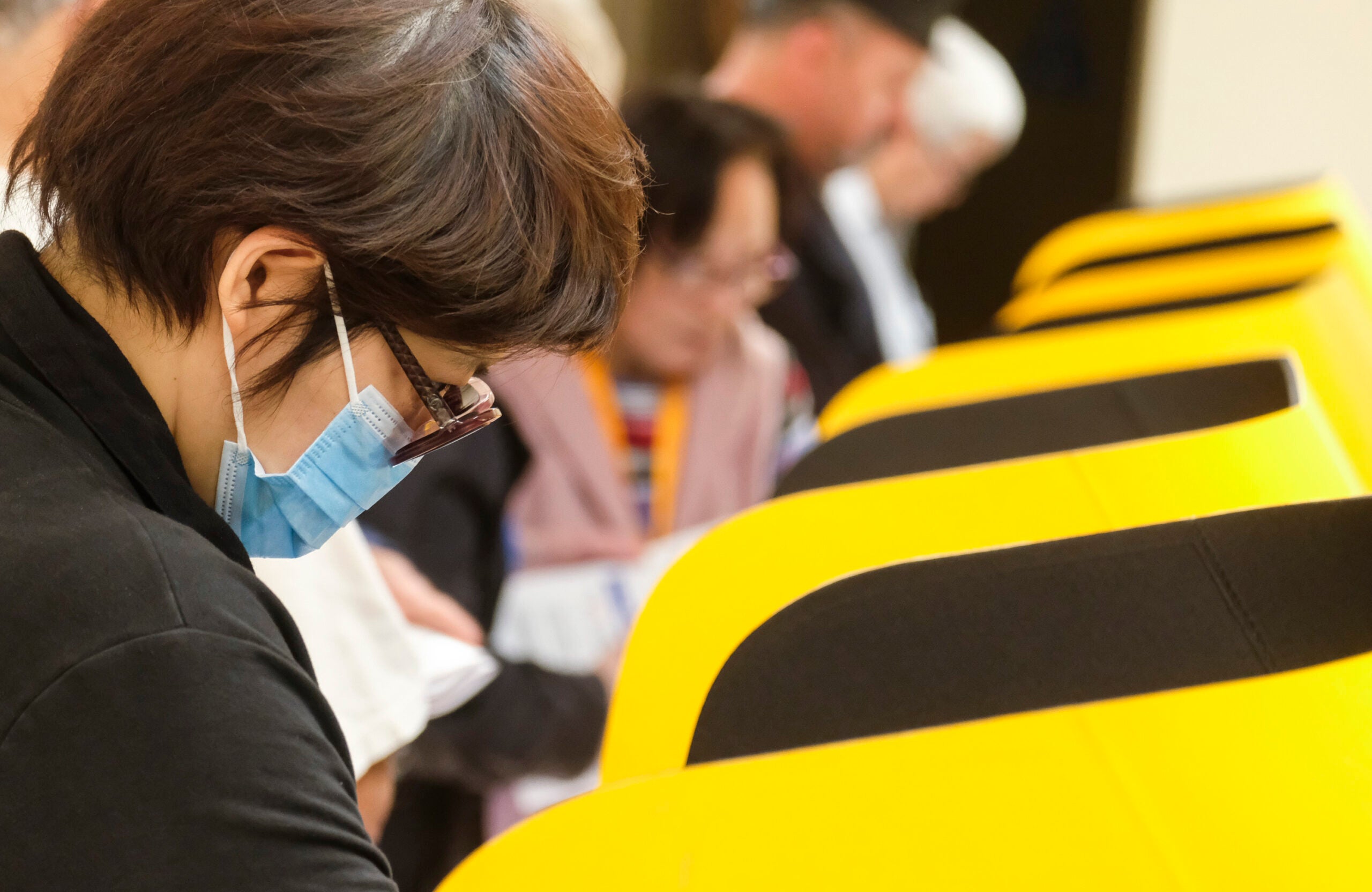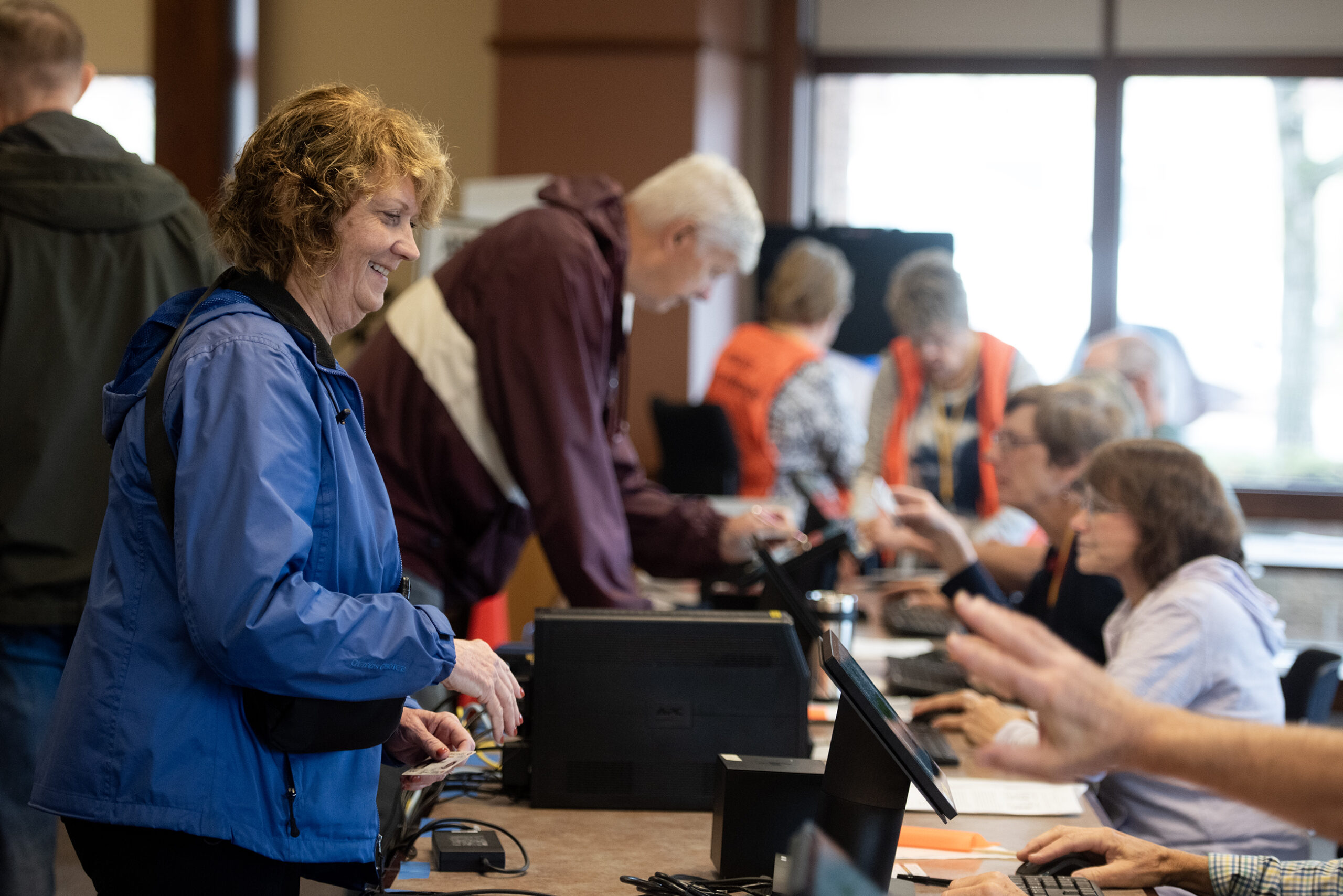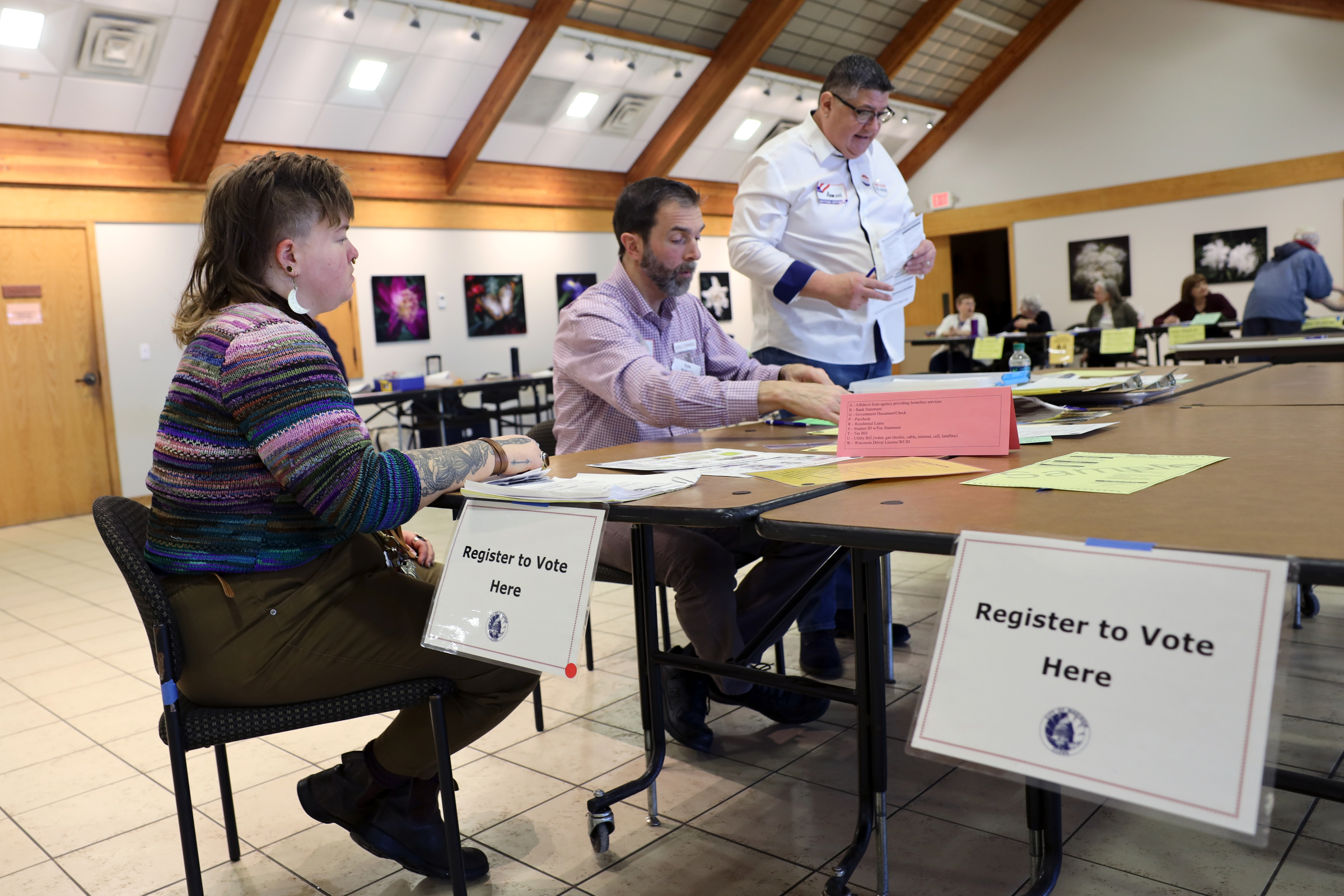Election officials in Wisconsin are making contingency plans for what they’ll do if polling places are closed due to concerns over the novel coronavirus. The virus has complicated the jobs of local clerks ahead of Wisconsin’s April 7 presidential primary.
“We’ve certainly heard from clerks that there are poll workers who are concerned about being poll workers, about exposing themselves to a potential threat,” said Meagan Wolfe, administrator of the Wisconsin Elections Commission.
Wolfe spoke Tuesday at the Governor’s Conference on Emergency Management and Homeland Security in Wisconsin Dells, addressing concerns about cyber attacks on U.S. elections. But she acknowledged that COVID-19 has been front and center for election workers in recent weeks.
Stay informed on the latest news
Sign up for WPR’s email newsletter.
In most cases, she said, local contingency plans developed in the event that polling places need to close due to flooding or fires or other issues will also apply if fears about spreading the disease force polling places to close. That could happen if a school were to close, or out of caution in a small number of Wisconsin polling places located in nursing homes.
“That planning that the clerks have been doing, and that exercising of their plans over the last couple of years are very applicable to a health concern as well,” Wolfe said.
Wisconsin’s election system is extremely decentralized, with 1,850 municipalities each responsible for their own elections. About two-thirds of Wisconsin’s municipal clerks work part-time. There are about 2,800 polling places in the state, and about 30,000 poll workers needed for a general election, Wolfe said.
Wisconsin has seen an increase in absentee voting in recent years, and it’s possible COVID-19 fears will further drive that number up. But because increases were already expected, clerks have already planned for more absentee ballots, Wolfe said.
The state Elections Commission will hold a webinar next week with local officials.
“We want to again make sure they have robust contingency plans that address health concerns as well as the wide variety of contingencies that they need to plan for on election day,” Wolfe said.
Wisconsin Public Radio, © Copyright 2025, Board of Regents of the University of Wisconsin System and Wisconsin Educational Communications Board.




